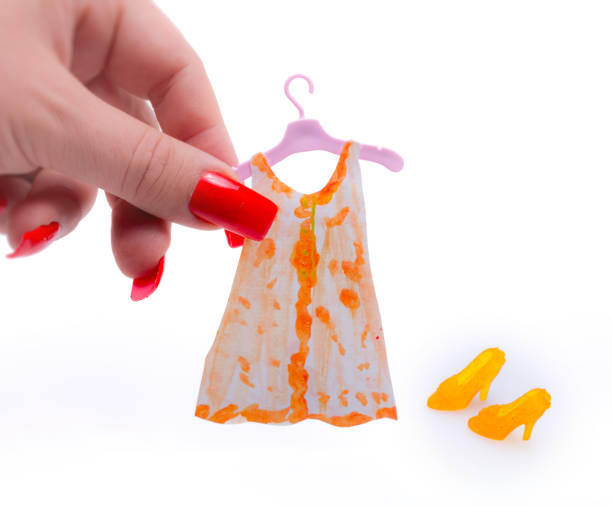Designing Custom Soap Wrappers: Factors to Consider
Designing custom soap wrappers can be a fun and creative process, but there are several important factors that should be considered to ensure the final product is both aesthetically pleasing and functional. Here are some key factors to consider when designing custom soap wrappers:
- Branding: The soap wrapper should reflect the branding of the company or product. Consider using the brand colors, logo, and any other branding elements to create a cohesive and recognizable design.
- Soap Type: Consider the type of soap that will be wrapped. Is it a bar soap or liquid soap? Is it scented or unscented? The design should be tailored to the specific product and its intended use.
- Materials: The choice of materials for the wrapper is important. Will it be paper, plastic, or a combination of both? Should it be biodegradable or recyclable? These choices will impact the final look and feel of the wrapper.
- Size and Shape: The size and shape of the soap should be considered when designing the wrapper. A rectangular bar soap will require a different design approach than a circular soap bar or a liquid soap pump.
- Functionality: The wrapper should be functional and easy to use. Consider how the soap will be accessed and how the wrapper will be opened and closed.
- Information: The wrapper should contain any necessary information about the soap, such as ingredients, instructions for use, and any safety warnings.
- Target Audience: Consider the target audience when designing the wrapper. Is it for children or adults? Is it a luxury product or an everyday item? The design should be tailored to appeal to the intended audience.
By considering these factors when designing custom soap wrappers, you can create a design that is both visually appealing and functional for the intended product and audience.
Materials Used for Custom Soap Wrappers
Custom Soap Wrappers can be made from a variety of materials depending on the desired look, functionality, and environmental impact. Here are some of the most common materials used for custom soap wrappers:
- Paper: Paper is a popular material for soap wrappers as it is lightweight, recyclable, and can be printed on easily. Different types of paper can be used depending on the desired texture and finish, such as glossy, matte, or textured paper.
- Cardstock: Cardstock is a thicker and more durable paper option that can be used to create more sturdy and professional-looking soap wrappers. It can be printed on and embossed to create a textured finish.
- Plastic: Plastic is a popular choice for liquid soap pump bottles as it is durable, waterproof, and can be molded into different shapes. However, it is not as environmentally friendly as paper options.
- Biodegradable Materials: Biodegradable materials, such as cornstarch-based plastics or plant-based cellulose, are becoming increasingly popular for soap wrappers as they are more environmentally friendly than traditional plastics.
- Fabric: Fabric can be used to create unique and eco-friendly soap wrappers. Options include cotton, muslin, and linen, which can be printed on or embroidered to create a textured and tactile finish.
When choosing a material for custom soap wrappers, it is important to consider the desired aesthetic, functionality, and environmental impact. A combination of materials may also be used to create a unique and functional design.
Labeling Custom Soap Wrappers: What to Include
When labeling custom soap wrappers, it is important to include certain information to provide consumers with the necessary details about the product. Here are some key things to include on a custom soap wrapper label:
- Product name: Clearly label the product name on the wrapper so that customers can easily identify it.
- Brand name and logo: Include the brand name and logo on the wrapper to reinforce brand recognition.
- Ingredients: List all ingredients used to make the soap, in descending order by weight. This is especially important for consumers with allergies or sensitivities.
- Net weight: List the weight of the soap in ounces or grams.
- Product description: Include a brief description of the soap and its intended use, such as “moisturizing” or “gentle for sensitive skin.”
- Directions for use: Provide instructions on how to use the soap, such as “apply to wet skin and lather” or “use as needed.”
- Safety warnings: Include any relevant safety warnings, such as “for external use only” or “avoid contact with eyes.”
- Batch number or expiration date: Include a batch number or expiration date to ensure the quality and safety of the product.
- Company contact information: Provide the company’s contact information, such as a website or phone number, for customers to reach out with questions or concerns.
By including these key pieces of information on a custom soap wrapper label, consumers will have the necessary information to make an informed purchase and use the product safely and effectively.
Choosing a Supplier for Custom Soap Wrappers
When it comes to choosing a supplier for custom soap wrappers, there are several important factors to consider to ensure that you are working with a reliable and high-quality provider. Here are some key considerations to keep in mind:
- Experience: Look for a supplier with experience in producing custom soap wrappers. Check their portfolio to see examples of their work, and ask for references or customer reviews.
- Quality: Quality is key when it comes to custom soap wrappers, as the packaging is an important part of the overall product experience. Look for a supplier that uses high-quality materials and has strict quality control processes in place.
- Customization options: Make sure the supplier can meet your customization needs, such as specific colors, designs, or materials.
- Cost: Compare prices from different suppliers to ensure that you are getting a fair and competitive price for the custom soap wrappers.
- Production capacity: Consider the supplier’s production capacity and lead times to ensure that they can meet your production needs within your desired timeline.
- Communication: Look for a supplier that communicates clearly and promptly, and is responsive to any questions or concerns you may have.
- Sustainability: Consider a supplier’s sustainability practices and options for environmentally friendly materials if sustainability is important to your brand.
By taking these factors into account, you can choose a reliable and high-quality supplier for your custom soap wrappers that will help elevate your product and brand.
Conclusion: Enhancing Your Brand with Custom Soap Wrappers
- Custom soap wrappers can be a powerful tool in enhancing your brand and creating a unique and memorable product experience for your customers. By designing custom soap wrappers that showcase your brand’s personality and values, you can differentiate your products from competitors and build brand loyalty.
- From selecting the right materials and designing eye-catching graphics to including essential product information and choosing a reliable supplier, there are several key factors to consider when creating custom soap wrappers. By investing in high-quality custom soap wrappers, you can communicate the quality and value of your products, while also creating a cohesive and professional brand image.
- With the right approach and attention to detail, custom soap wrappers can be an effective way to stand out in a crowded market and create a lasting impression with customers. So, whether you are just starting out or looking to refresh your existing product line, consider the impact that custom soap wrappers can have on your brand and explore the possibilities for your business.








